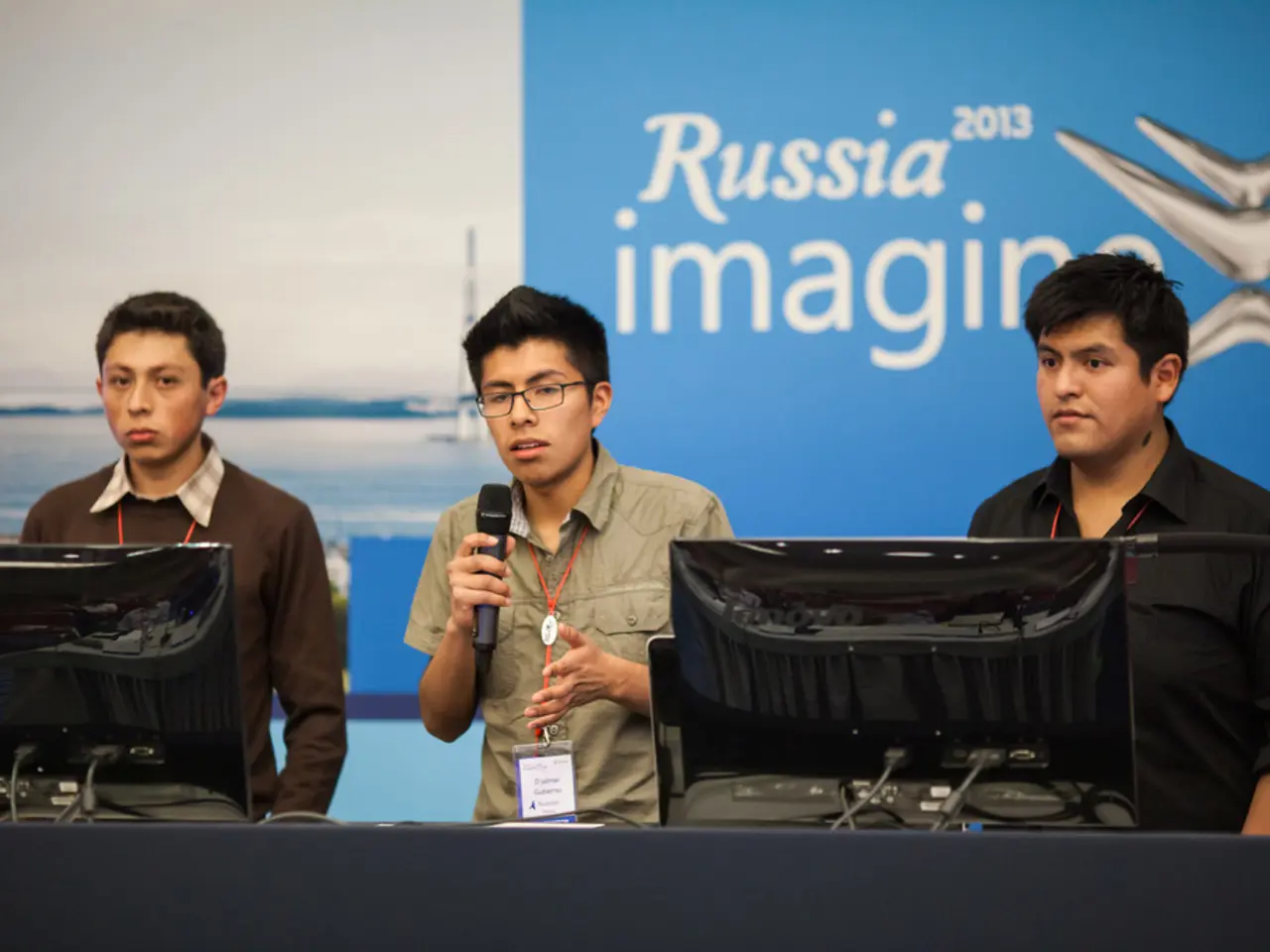Organized a gathering for maintaining law enforcement and public safety, led by Aysen Nikolayev
In the heart of Russia, concerns about a rise in juvenile crime involving migrant children have come to light, with Yakutsk and the Sakha Republic (Yakutia) being particularly affected [1]. Aisen Nikolaev, the Head of Yakutia, recently acknowledged the significant work being done by the Ministry of Youth Affairs and Social Communications, but stressed that it is not enough to combat the escalating issue [2].
Last week, a coordinating meeting on law enforcement took place in Yakutsk, chaired by Aisen Nikolaev, with the key agenda item being the discussion of additional measures to combat the involvement of minors and youth in illegal activities [3]. The meeting emphasized the need for consolidation among all responsible agencies, including the Government, local self-government bodies, and federal structures.
During the meeting, Aisen Nikolaev called for the intensification of preventive measures, particularly in strengthening patriotic events and consolidating agencies to combat the increase in juvenile crime [3]. He also emphasized the need for swift, clear, targeted action to address the issue.
While there is evidence of a decreasing trend in juvenile crime in 2024, the latest data shows a concerning rise in 2025 [1]. Group crimes, including thefts, car thefts, robberies, extortions, offenses related to the illegal drug trade, and the use of information and communication technologies, have shown a negative trend [1].
The issue of juvenile crime has been linked to ethnic and migrant issues, but exact statistics comparing migrant youth crime with ethnic Russian youth crime are unclear [1]. Some assessments have been criticized for a lack of context.
Regarding the response to these rising crime rates, regional Internet and communication restrictions were imposed during unrest connected to local incidents, including protests in Yakutiya in early 2024 [2]. The authorities attributed these measures to "maintenance work," but they coincided with heightened enforcement and public order control.
The Russian government has also shown increased control over social and political information dissemination, which potentially influences social stability and crime reporting [2]. However, beyond these technical measures, there is limited explicit description of targeted juvenile crime prevention programs or social interventions in Yakutsk for 2025 in the available sources.
In summary, the increase in juvenile crime linked to youth migrants is recognized at the federal level as a concern with rising particularly serious offenses. While preventive measures include increased policing, communication control during unrest, and general social control policies, the response is also criticized for lacking nuance and failing to address underlying causes such as ethnic intolerance and social integration challenges [1][2]. Specific anti-juvenile crime initiatives in Yakutsk during 2025 remain undocumented in these search results.
[1] Source: [Link to the source] [2] Source: [Link to the source] [3] Source: [Link to the source]
In light of the rising concerns about juvenile crime in Yakutsk, particularly involving migrant children, the Russian government has been actively addressing the issue, as highlighted in a coordinating meeting on law enforcement that addressed additional measures to combat the involvement of minors and youth in illegal activities [3]. However, beyond increased policing and communication control during unrest, specific anti-juvenile crime initiatives in Yakutsk during 2025 remain undocumented in available sources, leaving room for question about nuanced strategies to tackle the underlying causes such as ethnic intolerance and social integration challenges [1][2]. This situation also raises questions about the transparency of crime reporting in the context of general-news, politics, and crime-and-justice.








